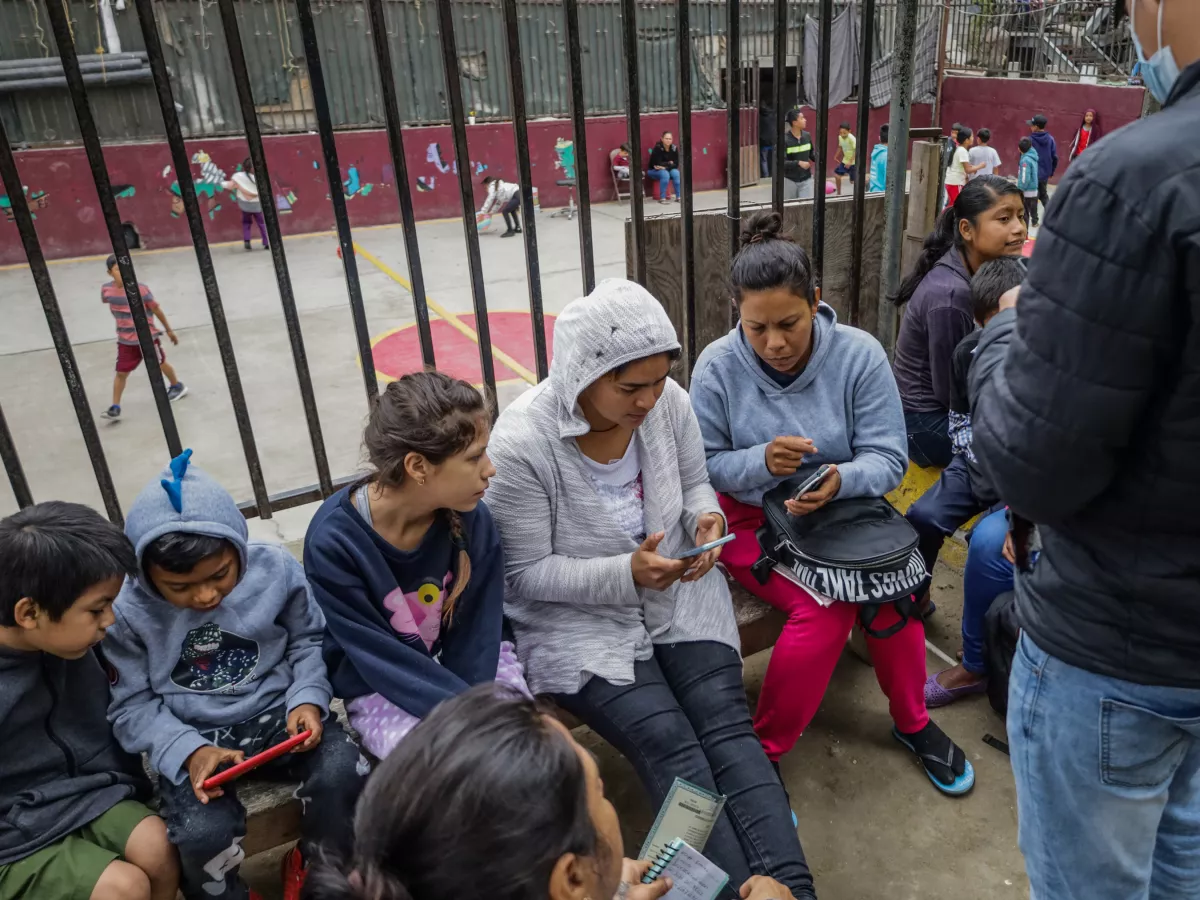Mexican immigrants denounce extensive network of “modern slaves” in Canada
Mexican immigrants denounced this Sunday networks of alleged recruiters who hook them with the illusion of obtaining work in Canada and then turn them into “modern slaves”, since they exploit them and have them crammed in housing that they share with up to 15 people.
“The whole thing is a fraud: they charge you 600 dollars (Canadian or 441.1 US dollars) a month in rent and demand another 5,000 dollars with the argument that they are processing your refuge in Canada,” Kevin, a Mexican who was deported today from Ottawa to Cancun, told EFE.
The undocumented man recalled that he borrowed money from his relatives to travel to Canada, deceived by these supposed recruiters, with the illusion of obtaining work and earning dollars.
“It’s all a lie, please don’t be fooled, they will only take you to Canada to exploit you, to turn you into slaves in the 21st century,” he reiterated.
Recruiters take advantage of the legal labor mobility schemes that exist between Mexico and Canada to hook victims.
The work programs offered, according to Canadian labor laws, are provincial, not federal, and the hourly pay varies.
For example, in Ontario, the pay is $15.83 per hour, which will go up next October, and $15.35 per hour in British Columbia.
In view of Kevin’s deportation, Canadian authorities in Mexico, who did not wish to identify themselves, warned against falling into this type of fraud and abuse: “Like many countries, including Mexico, we offer Complementary Protection for Foreigners or Refuge/Asylum, but in specific and special cases”.
The trap that Mexicans fall into is the illusion of the Canadian dream that is promoted through social networks, since they assure that the Government of that country has a high demand for labor and programs that facilitate entry.
However, many of them are cases of fraud.
The networks of recruiters deceive, “they take us to Canada, but they only exploit us, they turn us into slaves using sophisticated smuggling and human trafficking operations,” said Kevin.
SUBHUMAN CONDITIONS
Canadian sources reported that in recent months they rescued migrants who were working in subhuman conditions.
“The Mexicans were living in overcrowded conditions, paying a lot of money for rent, food and other services,” they reported that a few weeks ago they deported four inhabitants of Yucatan, in southern Mexico.
The most recent case reported by the York Regional Police, a community north of Toronto, was the rescue of 64 Mexicans from an international trafficking ring.
“The victims lived in misery and were forced to work long hours for little money, while their exploiters profited and lived surrounded by luxury,” the report says.
Another of the rescued immigrants revealed that an acquaintance from his town in Mexico “offered me work in Canada in exchange for a payment of 70,000 pesos (US$3,900) that included airfare and the supposed work visa,” which is actually the Canadian government’s Electronic Travel Authorization (ETA).
“I fell for it, the hustler didn’t have my work visa, he just provided me with a phone number and the name of a “contact” in Canada,” he said.
The “contact” took him to a house and informed the immigrant that he would pay $600 a month for a room in the house that was inhabited by more than 15 people sharing a bathroom and kitchen.
He was then taken to a lawyer who was supposed to take his “refugee” case to obtain a work permit, “but since I didn’t have $5,000 they abandoned me.”
The only sporadic work he got in the dead of winter was shoveling snow off sidewalks for a cash payment of $10 to $15, which he used to pay rent.
“For food I attended food banks or the community kitchens that exist in the provinces of Canada,” he added.
Today in Mexico, she sadly admitted that she had a terrible time, “because the work was hard, poorly paid and not constant, I lived in worse conditions than at home in Mexico”.

